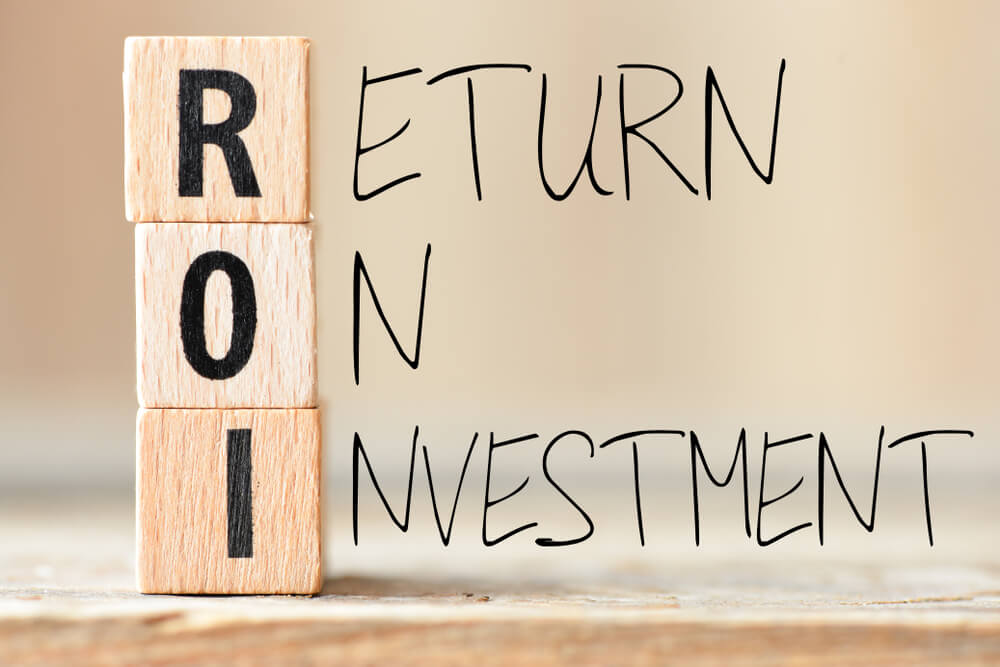We all want quick results from our marketing campaigns. As entrepreneurs, quick sales mean more money in our pockets that we can invest back into our growing businesses. Immediate conversions can also be validation that what we’re doing is working. If customers are purchasing quickly, it means our campaigns are resonating with our audiences.
But focusing only on the immediate ROI of your marketing campaigns can actually be hurting your brand and long-term goals. While immediate results can be strong indicators of how successful your marketing is, the returns can disappear as quickly as they came. Working in these small bursts of growth can make it nearly impossible to really scale your business, forcing you to start fresh with each campaign.
Rather than looking just at your immediate returns, focus on how each campaign improves your brand long-term. Let’s discuss why this is important and how you can shift your focus away from just short-term returns to consider long-term investments as well.
The Downside Of Only Measuring Short-Term ROI
When you’re only measuring direct results from a marketing campaign, you’re only looking at the returns for the duration of that campaign. When the campaign is done running, you tally up your total amount of sales and call it closed.
While it’s important to know how many sales come from a particular campaign or event, this mindset means you’re starting fresh with each campaign. You’re not looking at the impact of the campaign beyond when the ads stop running.
However, in business, there is no finish line. Even when a campaign is done, you still should be attracting clients and customers. This means you need to look at the long-term impact of your marketing to truly understand your return on investment.
Failing to look at long-term returns means you could be ignoring or forgetting about customers who could potentially turn into repeat buyers. If you’re ignoring the needs of the customers you attract from your individual marketing campaigns, you could be stunting your own business’s growth.
How To Measure Long-Term ROI

Many entrepreneurs and marketers default to measuring short-term ROI because it’s easy. With analytics and measurement tools, you can easily track how an ad converts or how many customers you attract through a campaign. Long-term ROI can be a bit more difficult.
In order to measure your long-term ROI, you need to find the right metrics. Rather than just conversions or sales, you want to look at outcomes rather than results.
While outcomes and results can feel interchangeable, they’re actually quite different in the marketing world. A “result” is a smaller metric within the marketing campaign, while an “outcome” is something more tangible.
Consider this example. Let’s say you run a marketing campaign that boosts your website traffic by 2,500 people. Of those 2,500 people, you land 15 new customers. The boost in website traffic would be your result, while the new customers would be an outcome.
However, there are different levels of outcomes within your campaign. While new customers are an outcome, it is still a short-term return on your marketing investment. A longer-term outcome would be customer lifetime value.
The lifetime value of a customer tells you how long a particular customer has been with your business. With this number, you can see how long a customer is sticking around and how much they’re spending. It looks at the long-term picture—not just how much that customer spent at once.
Knowing the average lifetime value of a customer can tell you if your marketing is doing a good job of targeting the right individuals. In an ideal world, you’ll convert a customer one time, and they’ll keep coming back. If your average customer lifetime value is high, this tells you you’re doing a good job.
Focusing on customer lifetime value can also help direct your marketing strategy to focus on converting more repeat customers than just new customers. By investing in attracting those who are already familiar with your brand, you can spend less to get their attention, saving your business money.
The Importance Of Focusing On Long-Term ROI
As an entrepreneur under pressure, you may feel like you need to sell right now. Unfortunately, if you’re only focusing on closing a deal, it can be difficult to grow. Rather than treating your marketing like a sprint, you need to treat it like an ultramarathon.
By focusing on long-term ROI, you recognize that growth should be constant—even if it means moving at a bit of a slower pace. By investing in marketing campaigns that help boost your average customer lifetime value, you’re investing in long-term relationships with customers and clients who care about you. Also, in the process, you are building a strong brand whose equity will be worth a lot when it comes time to exit.
Don’t get caught up in just measuring conversion rates and sales numbers. While they can be important to your business, especially when you’re just starting out, long-term metrics paint a more important story. Focus on ROI that helps your business grow and build a strong brand presence—not just close a short-term sale.
SOURCE: Forbes










